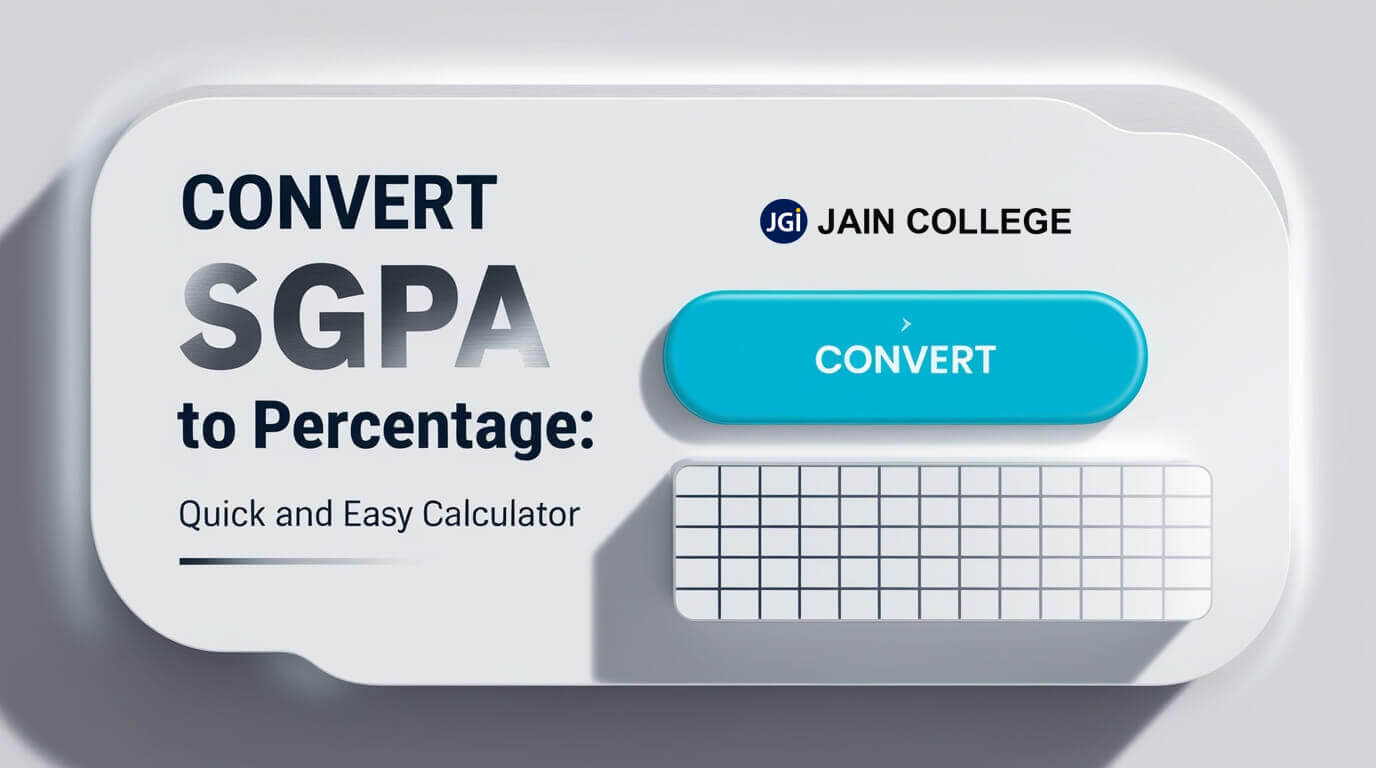
An online SGPA to Percentage calculator is a handy tool for students to quickly convert their academic scores. All you need to do is input your SGPA, and the calculator will do the rest, giving you an accurate percentage score.
To convert SGPA to Percentage, use the formula: (SGPA * 10) - 7.5. For example, if your SGPA is 8.5, the calculation will be: (8.5 * 10) - 7.5 = 85 - 7.5 = 77.5%. This formula is widely used in Indian universities, but always check with your institution for specific guidelines.
In today's competitive academic environment, students across the globe rely on different grading systems. One such system is the SGPA, which stands for Semester Grade Point Average. But how do you convert your SGPA into a percentage? In this guide, we'll break down everything you need to know about SGPA, how to calculate it, and most importantly, how to convert it into a percentage.
SGPA is a metric used in universities to measure students' academic performance during a particular semester. It's basically the average of all grade points earned in courses during a specific semester, factoring in the credits assigned to each course.
For example, let's say you've completed five courses in a semester, and you receive the following grades and credit points:
| Course | Credits | Grade Points | Credit Points (Credits x Grade Points) |
|---|---|---|---|
| Course 1 | 3 | 9 | 27 |
| Course 2 | 4 | 8 | 32 |
| Course 3 | 3 | 7 | 21 |
| Course 4 | 2 | 10 | 20 |
| Course 5 | 3 | 8 | 24 |
Now, calculate the SGPA: Total Credit Points = 27 + 32 + 21 + 20 + 24 = 124 Total Credits = 3 + 4 + 3 + 2 + 3 = 15 SGPA = 124 ÷ 15 = 8.26
Once you have your SGPA, converting it into a percentage is straightforward. Most universities use the following formula for the conversion: Percentage = (SGPA * 10) - 7.5 For instance, if your SGPA is 8.26 (as calculated above), the conversion would look like this: Percentage = (8.26 * 10) - 7.5 = 82.6 - 7.5 = 75.1% This conversion formula is widely accepted in Indian universities, but it's always wise to check with your institution for the specific calculation method they follow.
While SGPA is used for semester-based performance, GPA (Grade Point Average) is usually a cumulative score that spans across all semesters. CGPA (Cumulative Grade Point Average), on the other hand, reflects the overall academic performance throughout the entire program. Understanding the difference between these grading systems is key, as some institutions might prefer CGPA or GPA over SGPA.
Different countries have various grading scales. For instance:
Knowing how your institution's grading system works is essential for academic success and future opportunities.
To calculate your SGPA, you multiply the grade points you've earned for each course by the number of credits that course carries. After doing this for all your courses, you add the results together to get the total credit points. Divide that by the total number of credits taken during the semester, and voila—you have your SGPA!
To make things easier, let's look at a visual representation of how SGPA converts to percentage:
| SGPA | Percentage |
|---|---|
| 10.00 | 92.5% |
| 9.50 | 87.5% |
| 9.00 | 82.5% |
| 8.50 | 77.5% |
| 8.00 | 72.5% |
This table illustrates how SGPAs convert into percentages using the formula (SGPA * 10) - 7.5.
Improving your SGPA requires dedication and good academic habits. Here are a few tips:
There are several reasons you might need to convert SGPA to a percentage:
Converting SGPA to percentage can sometimes lead to errors. Here are some common mistakes and how to avoid them:
While SGPA calculates performance in a specific semester, CGPA provides a broader picture, summarizing the student's performance across all semesters. For example, if your program spans over four years, your CGPA would reflect your overall academic performance over those four years.
In conclusion, converting SGPA to Percentage is essential for academic and professional purposes. It helps translate your performance into a more universally recognized format. Whether you're aiming for higher studies or entering the job market, understanding and converting your SGPA is a vital skill.
JAIN PU College, a part of the renowned JGI Group, is committed to empowering students with quality education. Beyond academics, the college ensures its online content reflects the same standard of excellence. Every blog and article is meticulously vetted and proofread by subject matter experts to ensure accuracy, relevance, and clarity. From insightful educational topics to engaging discussions, JAIN PU College's content is crafted to inform, inspire, and add value to its readers, reflecting the institution's commitment to intellectual growth and innovation.
View all Blogs